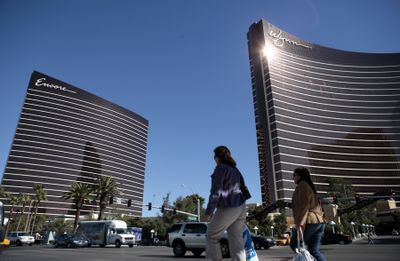After bailout, banks rethinking spending
Furor over perceived abuse of funds fuels reappraisal of habits

Cries for post-bailout accountability resounded at the biggest banks Tuesday, as Citigroup Inc. issued a 43-page defense of its lending, a consumer group lashed Bank of America Corp. for throwing a $10 million Super Bowl bash and Wells Fargo & Co. canceled plans to fete its top mortgage salespeople in Las Vegas.
The complaints raised questions likely to be asked frequently as more government help for companies is doled out. For example, can a bank answer to congressional committees as well as its regular shareholders? And how much should banks alter their marketing in a highly charged political environment?
The federal government has invested $45 billion in Citi and guaranteed more than $300 billion of its troubled loans. Answering complaints that bailed-out banks are not lending, Citi said Tuesday that it had committed $36.5 billion “to support U.S. consumers, businesses and our communities during these challenging times.” The funds are mainly for home mortgages and purchases of mortgage-backed securities.
In normal times, $45 billion in bank capital might result in 10 times that amount in new loans. Citi described the $36.5 billion as the “first stage” of what it hopes to do.
Bank of America, which also got $45 billion from the government, already had released figures to show it was making new loans and had slashed bonuses for many employees and eliminated them for top executives. But the Charlotte, N.C., bank went ahead with a five-day Super Bowl carnival in Florida as part of a sponsorship deal with the NFL. The event drew a condemnation Tuesday from consumer group Public Citizen of “this latest wave of irresponsible spending.”
No government funds were used to hold the event, said bank spokesman Lawrence Di Rita, who described it as “part of our traditional banking business.” The company decided to sponsor the carnival only after evaluating its “underlying revenue generating potential,” he said.
Wells Fargo had planned stays for top mortgage officers at the Wynn Las Vegas and a sister hotel starting Friday for “a four-day business meeting and recognition event for hard-working team members.”
Sales-driven businesses often use such meetings to motivate their staffs. But the bailout has brought criticism of the retreats: Congress vilified American International Group Inc. for spending $440,000 on spa treatments for executives in Southern California days after the insurer took $85 billion from taxpayers.
After the Associated Press reported the Wells Fargo event Tuesday, lawmakers skewered the San Francisco bank, which received a $25 billion infusion from the government.
In late 2008, Wells called off its “recognition events” for 2009 except in cases where doing so would produce “no meaningful savings,” spokesman Kevin Waetke said in an e-mail.
“We had scaled back the mortgage event, but in light of the current environment, we have now decided to cancel this event as well,” he said.
Cutting back on such perks and bonuses at a company with an aggressive sales culture could prompt the best salespeople to leave, said Edward Lawler, a business professor at the University of Southern California and head of its Center for Efficient Organizations.
But too many incentives “can wind up motivating people to do all the wrong things,” such as making mortgages that borrowers can’t afford, he said.
“The interesting thing is whether this is the beginning of a real shareholder and public revolt” about corporate pay, Lawler said. “We may be at a tipping point with respect to how people are compensated.”